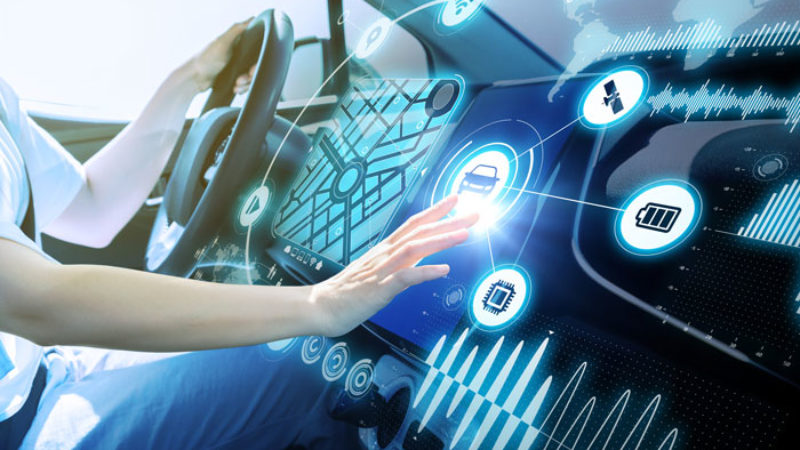Technology trends in the new era of automotive innovation
Technology is becoming ubiquitous in every industry. Today, in this digital age, it’s difficult to find an industry in which technology does not play a major role. The automotive industry with its fair share of ups and downs in the latter half of the century has shifted towards digital platforms in the awakening of shifting consumer priorities, environmental considerations, fluctuating markets, etc. This led to a new era of automotive innovation introducing new trends in automotive electronics such as autonomous driving, in-car infotainment, and all-electric cars.
The cars we now drive have become powerful computer-networked systems becoming a center of communication, providing entertainment, navigation, and connectivity. When anticipating the future in the automotive industry, the car of the future will be more than just a mode of transportation. In recent years, the automotive industry has worked hand-in-hand with major technology companies in order to deliver the most advanced, safest and most comfortable vehicles out there. As consumers demand more connectivity, convenience and safety features in their vehicles, the automotive industry is in an unprecedented era of innovation.
Unlike past periods of innovation in the automotive industry, the coming years will be particularly interesting because of the vehicle software and electrical and electronic architecture. Some critical automotive innovations include Connectivity, Autonomous driving, Electrification, and Diverse mobility.
With the growing demand for technology and connectivity in vehicles, a broadest automotive portfolio has to be included that combines high-performance mobile connectivity with secure device management. The automotive technologies include cellular modems, Wi-Fi and Bluetooth connectivity, global navigation satellite system and high-precision positioning solutions, software and infotainment platforms.
As per statistics, every year, more than 2 million people are injured and more than 30,000 killed in 6 million automobile crashes on U.S. roads. The rise of autonomous cars, which is perhaps, the most obvious and fundamental change facing the auto sector is relatively going to change the world. The widespread adoption of self-driving cars could have a revolutionary impact on the accidents potentially preventing 90 percent of crashes and saving thousands of lives every year. These autonomous vehicles are considered to be a significant part of the future of the automotive industry.
There is a lot of discussion about the evolution of electric vehicles going around in the corner together with what their impact could be. New developments for climate-friendly hybrid and electric vehicles are being supported to help improve performance and drive the green revolution in transportation. Electrified transport, in some form, is the growing interest and seems to be in our future. Consumers will eventually swap their gas-powered cars and trucks for rechargeable models. The automotive industry is expecting 127 battery-electric models to be introduced worldwide over the next five years. Vehicle electrification is a driving force in the ongoing revolution in the automotive industry.
The rise of mobility-as-a-service refers to the shift away from personally owned vehicles towards the use of ride-sharing or mobility solutions on an on-demand basis. As urban millennials are finding car ownership to be increasingly expensive and inefficient and other factors equally impacting them like cost per mile of a shared ride can be 40% lower than driving your own car, ride-sharing as transport is finding more support. Even established automakers like GM, Volkswagen, Ford are banking on the trend offering customized driver experience to the customers.
Augmenting the combination of automation and mobility services, there has been an explosive growth of car-hailing applications observed. The rapid growth of on-demand ride services, as well as car-sharing services, prevents current commuter inconveniences such as traffic and even parking will be reduced considerably. This will further make catching a ride to the destination far cheaper for the commuter. The confluence of all these factors is going to drive the future of automotive innovation marking a new era.


